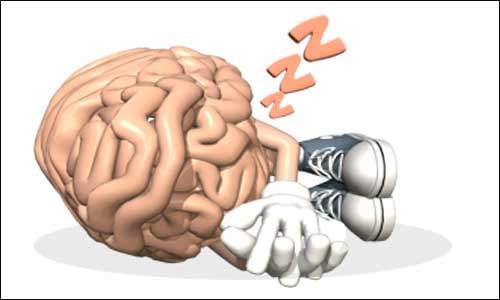Sleep eliminates the waste and toxins that accumulate in the brain

- 4787
- 1377
- Hugh Greenholt
Sleep is essential for our correct functioning. While we sleep, we get a physical and cognitive balance and not only recover energy, but the organs and systems of the body work until they control all vital functions, maintaining a good level of homeostasis, that is, a correct tendency to internal self -regulation that Get stabilize the organism.
In fact, there is still much to discover about the importance that the act of sleeping has for our survival and research in recent years are increasingly revealing information. One of these investigations highlights the important capacity of sleep to eliminate toxins and waste accumulated in the brain.
When we sleep we eliminate brain waste
For centuries, scientists have wondered how dream affects the brain improving cognitive abilities such as attention, memory or concentration. It has not been until recent years when the properties that the dream possesses at the brain level have begun to be revealed. This is what the research team did of the Rochester University led by the Dra Nedergaard that he managed to find how the act of sleeping got that The brain will clean itself from toxic molecules.
The team members studied the brain of mice while they slept and checked how, in the words of Nedergaard, brain fluids pumped and eliminated a very fast pace. Using the technique of excitation microscopy of two photons, a technique that allows visualizing images of living tissues with great depth, the researchers could observe how the cerebrospinal fluid flowed through the brain with greater fluidity, managing to eliminate harmful substances and incorporating them through the bloodstream to the liver, where these elements would be subsequently undone.
The cerebrospinal fluid is a transparent fluid that, in addition to serving as a waste eliminator, acts as a shock absorber of the impacts that the brain can receive.
For this cleaning process, glial cells, cells that play a key role in brain support and functioning, also have very important functions. Through GLINFATIC SYSTEM, glial cells control the flow of cerebrospinal fluid swelling or shrinking for the best step of this.

The researchers decided to verify whether the glinphathic system in the sleeping brain suffered to some modification and through the insertion of electrodes to measure the space between the cells, they checked how they were shrunk until reduced by 60%, allowing greater fluidity of this liquid and getting a better toxin elimination.
When the animals woke up, the cells were enlarged again and the cerebrospinal fluid cleaned was reduced until a drip became. "It's almost like opening and closing a key," explained the study leader. "We were surprised by the little circulation in the brain when the mice were awake. (…) This suggests that the space between brain cells changes a lot between conscious and unconscious states ”.
According to Nedergaard, this process cannot be carried out during the vigil because it requires a lot of energy, which would make our capabilities work properly.
The importance of eliminating brain toxins
This process is important, because it allows the brain eliminates proteins that are toxic for him. This could explain why when we do not sleep well, it costs us so much to maintain our cognitive functions properly. "It's like a motorhome," explains Dra Maiken Nedergaard, author of the study published in the journal Science.
Nedergaard's research results are also related to some extent to the connection between sleep disorders and diseases such as Alzheimer's. During this disease, there is a peptide called Beta amyloid which occurs exacerbated in the extra cellular space forming senile plates. During the elimination of toxins that occur in sleep, beta amyloid protein that has increased during vigil, is also eliminated. This suggests that the elimination of beta amyloid is not effective during sleep in Alzheimer's and can encourage research on the connection that this disease, like many others, has many sleep disorders.
References
- Brain May Flush Out toxens During Sleep. (2013). https: // www.NIH.GOV/News-Events/News-Releases/Brain-May-Flush-Out-Toxions-During-Sleep
- Brains Sweep Themselves Clean of Toxens During Sleep (2013) https: // www.Npr.Org/Sections/Health-Shots/2013/10/18/23211811/Brains-Sweep-Themselves-Clean-Off-TaxiS-During-Sleep

